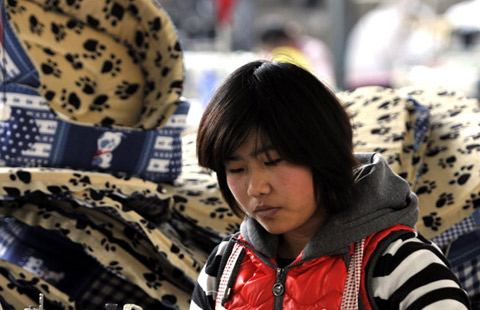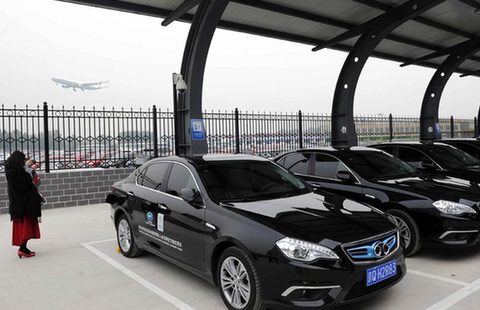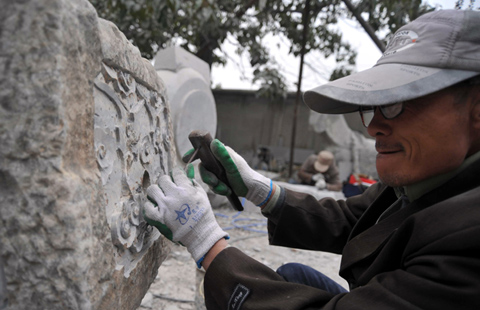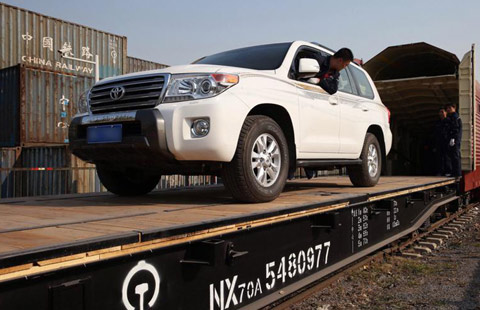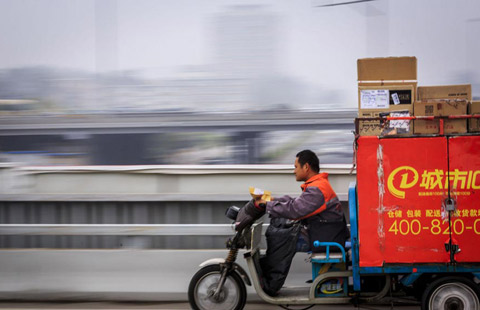Developers' bonds wilt as issuers' finances weaken
By Bloomberg (China Daily) Updated: 2014-11-06 11:01
|
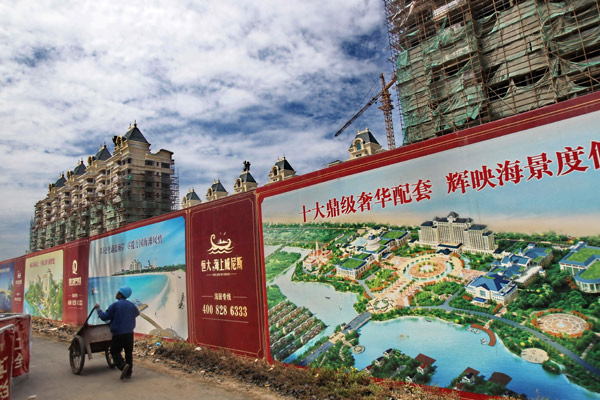 |
|
An Evergrande Real Estate Group Ltd property project in Qidong, Jiangsu province. Builders in China are being hit by rising debt levels as gross domestic product is set to expand 7.3 percent, the least in more than two decades, according to estimates in a Bloomberg survey. [Photo / Provided to China Daily] |
Hui Ka Yan's property company is among the Chinese builders whose bonds are slumping as investors highlight weakening finances, limited creditor protection and record debt maturities.
Evergrande Real Estate Group Ltd, a developer that has expanded into soccer team ownership and baby formula, is "looking into" refinancing $1.35 billion of notes due January, the company said last Wednesday. The yield on its 2018 notes surged 256 basis points this year to 11.2 percent as the industry faces an unprecedented $12.7 billion in bond repayments next year, data compiled by Bloomberg show.
The Guangzhou-based company changed rules to allow a lower income to expense ratio, among four Chinese builders to alter covenants in the past 12 months.
Borrowing costs for Chinese dollar-denominated bond issuers jumped to a five-month high last month after new home prices slid in 69 out of 70 cities in September.
The number of publicly traded real estate companies with liabilities exceeding equity has increased to 136 out of 334 from 57 in 2007, as the economy heads for its slowest growth in more than two decades.
"Investors are looking at large supply and weak covenants amid a slowing Chinese economy," said Raymond Chia, the Singapore-based head of credit research for Asia excluding Japan at Schroder Investment Management Ltd, which had $464.1 billion under management as of June 30. "That is challenging."
China accounts for a record 87 percent of junk bonds sold in Asia this year, and protections written in the debt of the country's riskiest borrowers are deteriorating, according to Moody's Investors Service.
Adding debt to subsidiaries instead of the parent, a practice known as carve-outs, is also reducing the margin of safety for holders of these bonds, according to Ken Hu, chief investment officer of fixed income in the Asia-Pacific region at Invesco Ltd, which oversaw $789.6 billion as of Sept 30.
"The loosening covenants, especially increasingly more carve-outs, are meaningfully cutting protection," Hu said. "They should be taken into account when we gauge relative values among bonds."
Fixed charge coverage ratios, a measure of a company's ability to pay recurring expenses including interest, have dropped for recent bonds from property developers compared with two years ago, Jake Avayou, vice-president and senior covenant analyst at Moody's, said on Monday.
In January, investors agreed to let Evergrande lower that ratio in its 2015 securities and offshore yuan 9.25 percent bonds due in 2016.
The company's interim report in June showed net debt rose to 89.6 percent of shareholder equity from 69.5 percent as of Dec 31. The long-term debt-equity ratio has risen to 165 percent from 99 percent a year ago, Bloomberg-compiled data show.
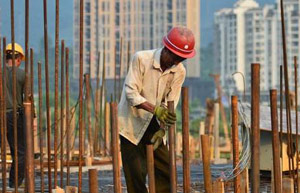 |
 |
| Lower prices challenge developers | Everbright's stock earnings slumped in 2013 |
- Three Gorges project generates 800b kWh electricity
- China's phone users reach 1.5b
- Measures will keep local debt burdens in check
- China Southern launches Guangzhou-Jeju Island service
- Homebuyers go online to finance down payments
- Changan Ford commissions 3rd China plant
- Business travel gets lift as more firms go global
- Left-behind women make pet beds for export
